[unable to retrieve full-text content]
Tamil New Year Special: An Interview With Scholar Who Translated 'Ponniyin Selvan' Into Sanskrit SwarajyaSunday, April 16, 2023
Commentary: Far from lost in translation, Macron said exactly what he meant on Taiwan - CNA - Translation
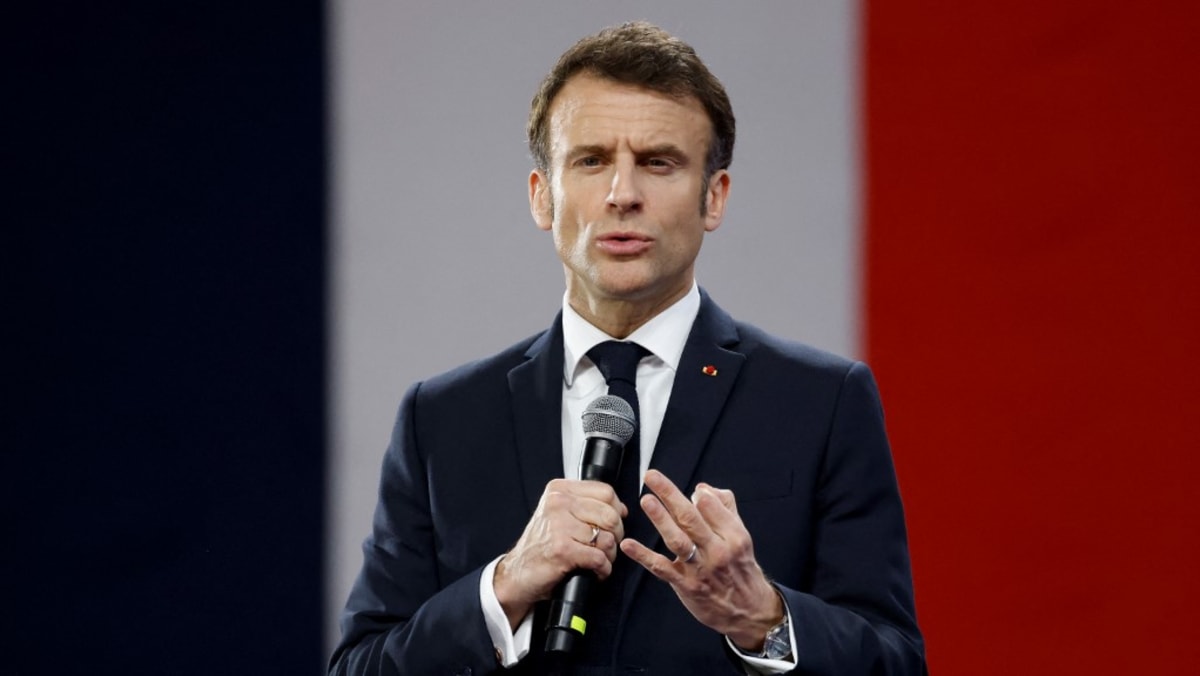
CAREFUL WORDS
Not only is Macron displaying continuity over a nearly six-year period, but his seems a reasonable point. Reflecting on the conversations that have been had recently in Australia about sovereign decision-making, why should we begrudge a country for wanting to contribute in its own way to the prevention of a major crisis in the Indo-Pacific?
Macron certainly expressed himself in a colourful and typically Francophone way - other than Scott Morrison’s brief dalliance with International Relations theory, you’d be hard-pressed to remember an Australian prime minister talking about events in international affairs “from a Gramscian perspective”. But the reaction to Marcon’s comments has also been typically - and disappointingly - Anglophone.
The French president’s statements are not some kind of Munich-lite appeasement speech, as former United Kingdom prime minister Liz Truss suggests. Nor can any one leader can speak for all members of the European Union. Macron’s comments were an expression of existing French policy.
The idea of a trading bloc the size of the European Union acting to balance against the potential aggression of a rising China should be greeted with interest and engagement. Unlike Australia, which until recently believed it could reasonably not make a choice between the United States and China, the EU’s economic heft make it far more able to do just this.
Macron’s government understands that a crisis in Asia would affect Europe. The French Indo-Pacific Strategy, unveiled by Macron at Sydney’s Garden Island in 2018, and updated in 2022, makes this point in its first pages. And the French military presence of more than 8,000 soldiers stationed in the Indo-Pacific, from Reunion to French Polynesia, is, of course, far higher a number than partners in London appear capable of providing.
Undoubtedly, world leaders should be careful about what they say, when, and how they say it. Yet as Australian Foreign Minister Penny Wong has said, talking to China is good.
Asserting that a war over Taiwan is in no one’s interest is correct. Deterrence can be an effective way of preventing war, but major arms races between superpowers have rarely ended peacefully.
Recent Australian governments of both persuasions have talked about welcoming like-minded engagement in the region. After reading the commentary of the last few days, you have to wonder if that only means minds that think in English.
David Vallance is a Research Associate at the Lowy Institute. This commentary first appeared on Lowy Institute's blog The Interpreter.
"Dig Where Your Stand", Swedish rallying cry for workers, translated into English for the first time - Boing Boing - Translation

I believe that learning comes from life and living. Life and living can lead to a classroom or workshop, a fascination with reading, movies, or documentaries, or the joy of listening to others' stories. Learning is living life with others, acting and thinking, creating and loving, lamenting, working, sleeping, being, and surviving.
To beleaguer the obvious point, a classroom is not necessary to learn and can, in fact, hinder learning. Or, as Naeem Inayatullah proposes, perhaps "teaching is impossible, and learning is unlikely" – in the classroom.
Popular education, learning from life, where everyone is a researcher, asking questions about how to make tomorrow different, asking questions about how today came about, asking questions about who created the conditions inherited when born, is the type of learning I appreciate and look for.
Exterminate All the Brutes, the four-part HBO-produced documentary by Raoul Peck, is based on Sven Lindqvist's book of the same name. Exterminate All the Brutes "is a searching examination of Europe's dark history in Africa and the origins of genocide." Yet, before Lindqvist's research was transformed into a incite-ful and insightful documentary, Lindqvist started the "Dig-movement."
Linqvist's first book, Dig Where You Stand: How to Research a Job, has been published in English for the first time forty-five years after its initial publication in 1978.
"Dig Where You Stand is a rallying cry for workers to become researchers, to follow the money, take on the role as experts on their job, and "dig" out its hidden histories in order to take a vital step towards social and economic transformation. A how-to guide that inspired an entire movement, it makes the case that everyone – not just academics – can learn how to critically and rigorously explore history, especially their own history, and in doing so, find a blueprint for how to transform society for the better. In a world where the balance of power is overwhelmingly stacked against the working-class, Dig Where You Stand's manifesto for the empowerment of workers through self-education, historical research and political solidarity is as important and relevant today as it was in 1978."
In the introduction to the English edition, Andrew Flinn and Astrid von Rosen explain, "The central idea underpinning Dig Where You Stand is that doing history work is a necessary and significant contributory factor in achieving social, political and industrial change, and indeed fashioning a new world…. It instructs the reader how to formulate and pose urgent and critical research questions – questions about power and the lived legacies of the past in the present still relevant today – and provides the researcher with the tools to research and answer those questions."
The book honors the power of history from below. It narrates an accessible and collective process that was part of a public education and research movementduring the late 1970s and 1980s in Sweden, Germany, the United Kingdom, and Canada. Intended to create counter-histories to elite capitalist narratives, "The Dig-movement" or Grävrörelsen also created study materials for producing local history. "The Dig-movement consisted of thousands of local study circles aimed at fostering local democracy, conducting local and industrial historical research, producing worker's theatre and lots of other aesthetic activities resulting in exhibitions, oral history sessions and writing workshops."
At a time when university education is under attack by right-wing ideologues; when dedicating four, five, sometimes six years to college often has the consequence of piled-on, trauma-inducing lifetime debt; and when workers organize unions in new labor sectors and across national borders, learning and researching should be democratic practice worth recovering.
By democratic, I do not mean voting or partisan ideas. Instead, the emphasis is on the root of radical democracy, the democratic living of collective participation in understanding and impacting the world through open-source TOR-inspired technology and research projects by emerging unionized workers, to abolitionist-inspired after-school skateboard programs, and everything and all in between. Democratic living is not having to make oneself available for authoritarianism and the censored historical narratives proffered by fascists – and their politicians – from Florida.
Lindqvist was a prolific writer and public intellectual. Many of his thirty-five manuscripts of essays, history, travel literature, aphorisms, and other presentations were translated into more than ten languages. Lindqvist prose transcended, melded, and split genres, while his handbook for research empowered working people to tell their own stories.
On the occasion of Lindvqist's death in 2019, The New Press released this excerpted statement, quoting writer Adam Hochschild, "Like many of the most original writers, Sven Lindqvist is hard to pigeonhole. He is not exactly a historian, for his graduate degree is in literature. He is not exactly a travel writer, for he has little interest in the colorful details that make a place seem exotic; he always wants to direct our attention back to our own culture. He is not exactly a journalist, for when he travels to far points on the globe, he is less likely to interview anyone than to tell us about his own dreams." Hochschild continues, "Lindqvist's work leaves you changed . . . [he] opens a world to us, a world with its comforting myths stripped away. You read him at your own risk."
Saturday, April 15, 2023
Researcher Discovers Fragment of 1750-Year-Old Translation of Gospel of Matthew - Faithwire - Translation
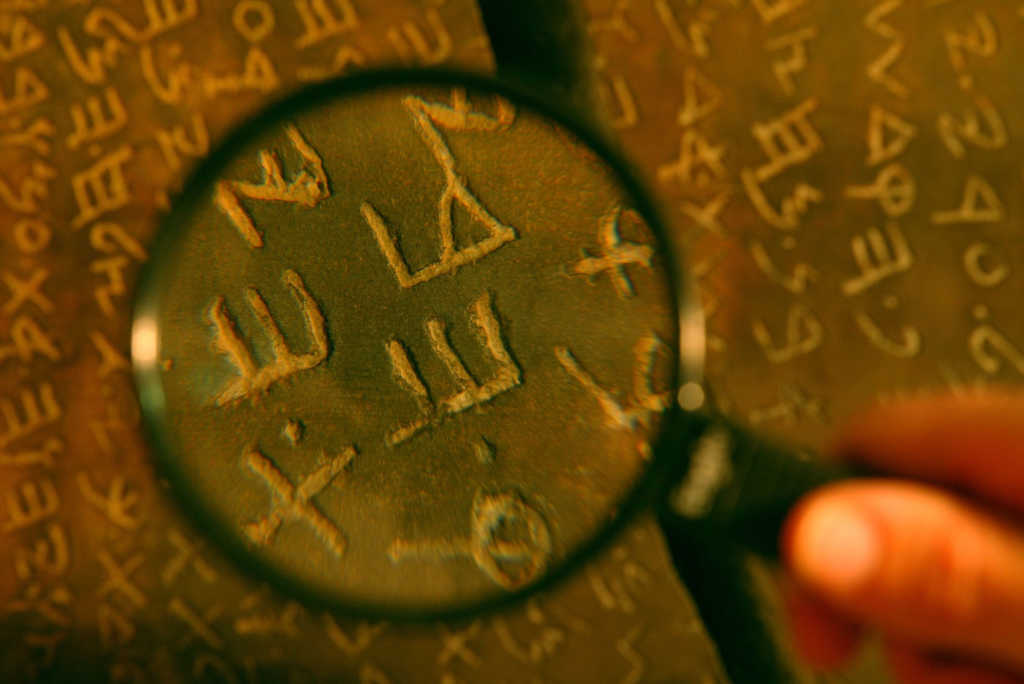
A researcher at the Austrian Academy of Sciences has discovered what scientists say is a fragment of the oldest writing of the text of Matthew from the Bible’s New Testament.
The biblical text had been hidden underneath other writing on an ancient piece of parchment.
“About 1,300 years ago a scribe in Palestine took a book of the Gospels inscribed with a Syriac text and erased it. Parchment was scarce in the desert in the Middle Ages, so manuscripts were often erased and reused,” the academy, also known as OeAW or Österreichische Akademie der Wissenschaften, explained in a recent post on its website.
Listen to the latest episode of CBN’s Quick Start podcast 👇
Medievalist Grigory Kessel, one of the members of the OeAW research team, used ultraviolet photography to reveal the ancient transcription which was located underneath three layers of text. The layered manuscript, a so-called palimpsest, is now legible again using modern technology.
It turns out Kessel discovered one of the earliest translations of the Gospels, made in the 3rd century and copied in the 6th century, on individual surviving pages of this manuscript, the OeAW said.
The team’s study announcing the find was published last month in the journal New Testament Studies. The study includes the translation of Matthew 11:30 to Matthew 12: 26 that originally translated into the Old Syriac translations more than a millennium ago.
The Syriac language is an Aramaic dialect that emerged during the first century AD from a local Aramaic dialect that was spoken in the ancient region of Osroene, centered in the city of Edessa. During the Early Christian period, it became the main literary language of various Aramaic-speaking Christian communities in the historical region of Ancient Syria and throughout the Near East from the first century until the Middle Ages.
“As far as the dating of the Gospel book is concerned, there can be no doubt that it was produced no later than the sixth century. Despite a limited number of dated manuscripts from this period, comparison with dated Syriac manuscripts allows us to narrow down a possible time frame to the first half of the sixth century,” the study said.
“The tradition of Syriac Christianity knows several translations of the Old and New Testaments,” Kessel said in a post about the discovery on the OeAW website. “Until recently, only two manuscripts were known to contain the Old Syriac translation of the gospels.” While one of these is now kept in the British Library in London, another was discovered as a palimpsest in St. Catherine’s Monastery at Mount Sinai. The fragments from the third manuscript were recently identified in the course of the “Sinai Palimpsests Project”.
The fragment is so far the only known remnant of the fourth manuscript that attests to the Old Syriac version – and offers a unique gateway to the very early phase in the history of the textual transmission of the Gospels, according to the OeAW. For example, while the original Greek of Matthew chapter 12, verse 1 says: “At that time Jesus went through the grainfields on the Sabbath; and his disciples became hungry and began to pick the heads of grain and eat,” the Syriac translation says: ” {…} began to pick the heads of grain, rub them in their hands, and eat them.”
Claudia Rapp, director of the Institute for Medieval Research at the OeAW, praised Kessel’s work and explained the Syriac translation was produced at least a century before the oldest Greek manuscripts that have survived, including the Codex Sinaiticus. The earliest surviving manuscripts with this Syriac translation date from the 6th century and are preserved in the erased layers, so-called palimpsests, of newly written parchment leaves.
“This discovery proves how productive and important the interplay between modern digital technologies and basic research can be when dealing with medieval manuscripts,” Rapp said.
As CBN News has reported, scholars and researchers are using modern technology to unlock and read secrets of the past from ancient biblical manuscripts that some had previously thought were simply lost to time.
As we reported last December, experts at the University of Iowa are finally able to look at the pages of a badly damaged ancient manuscript that is believed to be the Biblical Book of Acts using a newly developed X-ray scanner.
University of Kentucky computer scientist W. Brent Seales and University of Iowa early Christianity scholar Paul Dilley are using the same process that was used to decode the Dead Sea Scrolls.
But it’s not just the Book of Acts that’s hidden in the previously inaccessible manuscript.
Melville House writes, “It likely also contains another text, and it is this text that has Dilley and other scholars of early Christianity curious, as it could provide another piece in the puzzle of the formation of the New Testament.”
Dr. Melissa Moreton, a manuscript historian at the Iowa Center for the Book, wrote a blog post about the codex called: Revealing the Secrets of an Early Coptic Manuscript.
She writes, “The manuscript is too fragile to be opened and is unreadable due to the water and heat damage it has suffered. The manuscript is also extremely warped creating wave-like sheets – which is common with water and heat-damaged parchment.”
***As the number of voices facing big-tech censorship continues to grow, please sign up for Faithwire’s daily newsletter and download the CBN News app, developed by our parent company, to stay up-to-date with the latest news from a distinctly Christian perspective.***
Taiwan: Far from lost in translation, Macron said exactly what he meant - The Interpreter - Translation
Returning from a trip to Beijing, President Emmanuel Macron gave an interview this week to journalists from Politico and French newspaper Les Echos. His words, especially when asked about Taiwan, have stirred a great deal of controversy, some justified, but some not.
Macron’s trip to China was certainly a PR disaster. Photos alongside President Xi Jinping portrayed Macron as obsequious rather than diplomatic, not the sort of figure expected to be advocating for a strong European role in Asia.
His staff also mistakenly sought maximum control in dealing with the press, insisting they be allowed to vet all the President’s quotes as a condition of his granting the interview. Likely, Macron was hoping to come away with this trip with a win to deflect from his troubles at home, and willing to do a lot to achieve one.
China also did Macron no favours, given that in the days after he departed, Beijing conducted military drills around Taiwan, simulating a blockade of the island as well as precision strikes.
However, reading some commentary reacting to Macron’s statements, you’d think that he had decided that the PLA should jump over the Taiwan Strait tomorrow.
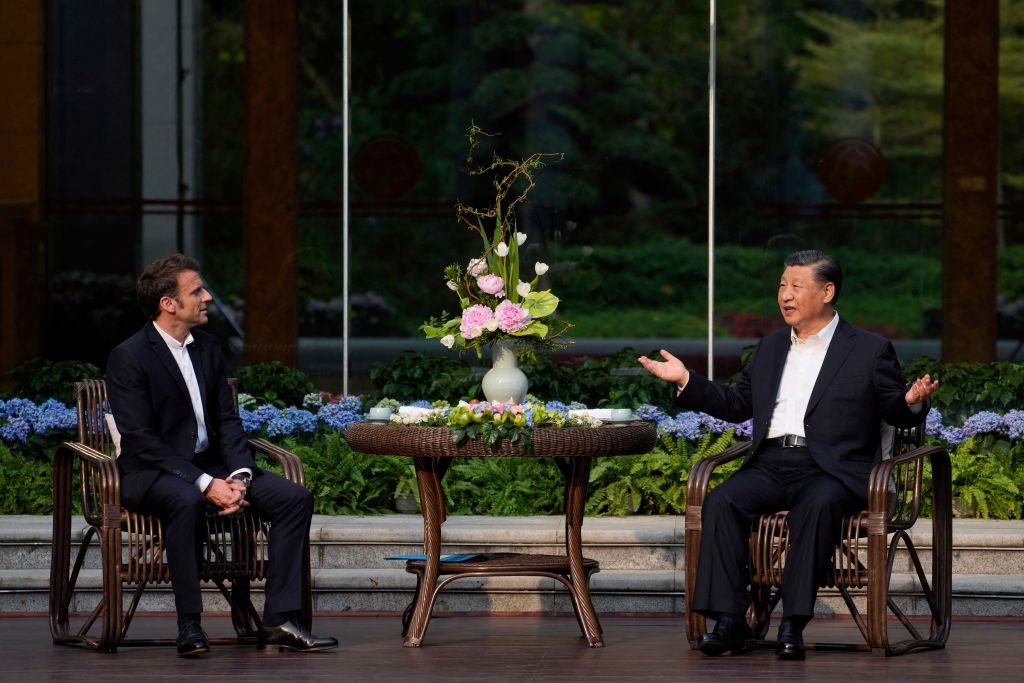
The most-reported snippets of Macron’s interview are his statements that Europe should not “take our cue from the US agenda and a Chinese overreaction”, and that Europe risks become one of “America’s followers”. Translation is a fickle thing, and this rendering of French into English can reasonably be disputed.
In this case it is best to refer to the full interview, published in Les Echos, rather than the quotes used in the Politico piece. This is not to say, as some have suggested, that Politico was intending to distort Macron’s words. This is not a case of “what did the President actually say?” Reading his interview in its entirety simply provides more context.
The context being that these remarks represent nothing more or less than a continuation of the policy approach that Macron laid out months after becoming President at a speech to the Sorbonne in September 2017.
Here is a quote from that earlier speech:
It is by constantly articulating the driving ambition of a few and respecting everyone’s pace that we will create the desire to move forward, and that Europe will progress for the benefit of all.
Now take the full quote of Macron’s statement about Taiwan from the recent interview:
Do we have an interest in an acceleration over the subject of Taiwan? No. The worst choice would be to think that we, Europeans, must be followers on this subject, and adapt ourselves to an American pace and a Chinese overreaction. Why should we go at the rhythm chosen by others?
Speaking in the Netherlands, Macron has since reiterated this view, while also stating in clear terms that both France and Europe supports the status quo situation with regard to Taiwan.
Should we begrudge a country for wanting to contribute in its own way to the prevention of a major crisis in the Indo-Pacific?
Not only is Macron displaying continuity over a nearly six-year period, but his seems a reasonable point. Reflecting on the conversations that have been had recently in Australia about sovereign decision-making, why should we begrudge a country for wanting to contribute in its own way to the prevention of a major crisis in the Indo-Pacific?
Macron certainly expressed himself in a colourful and typically Francophone way – other than Scott Morrison’s brief dalliance with International Relations theory, you’d be hard-pressed to remember an Australian PM talking about events in international affairs “from a Gramscian perspective”. But the reaction to Macron’s comments has also been typically – and disappointingly – Anglophone.
The French President’s statements are not some kind of Munich-lite appeasement speech, as former UK prime minister Liz Truss suggests. Nor can any one leader can speak for all members of the European Union. Macron’s comments were an expression of existing French policy.
The idea of a trading bloc the size of the European Union acting to balance against the potential aggression of a rising China should be greeted with interest and engagement. Unlike Australia, which until recently believed it could reasonably not make a choice between the United States and China, the EU’s economic heft make it far more able to do just this.
Macron’s government understands that a crisis in Asia would affect Europe. The French Indo-Pacific Strategy, unveiled by Macron at Sydney’s Garden Island in 2018, and updated in 2022, makes this point in its first pages. And the French military presence of more than 8,000 soldiers stationed in the Indo-Pacific, from Réunion to French Polynesia, is, of course, far higher a number than partners in London appear capable of providing.
Undoubtedly, world leaders should be careful about what they say, when, and how they say it. Yet as Foreign Minister Penny Wong has said, talking to China is good. Asserting that a war over Taiwan is in no one’s interest is correct. Deterrence can be an effective way of preventing war, but major arms races between superpowers have rarely ended peacefully.
Recent Australian governments of both persuasions have talked about welcoming like-minded engagement in the region. After reading the commentary of the last few days, you have to wonder if that only means minds that think in English.
First LEGO Marvel Visual Dictionary minifigure revealed - Brick Fanatics - Dictionary
The exclusive minifigure in the first-ever LEGO Marvel Visual Dictionary has been confirmed as the final version of the book’s cover surfaces.
Now officially revealed on the DK website, the exclusive minifigure in the first LEGO Marvel Visual Dictionary has been confirmed as a new Iron Man suit – close to one of our initial predictions.
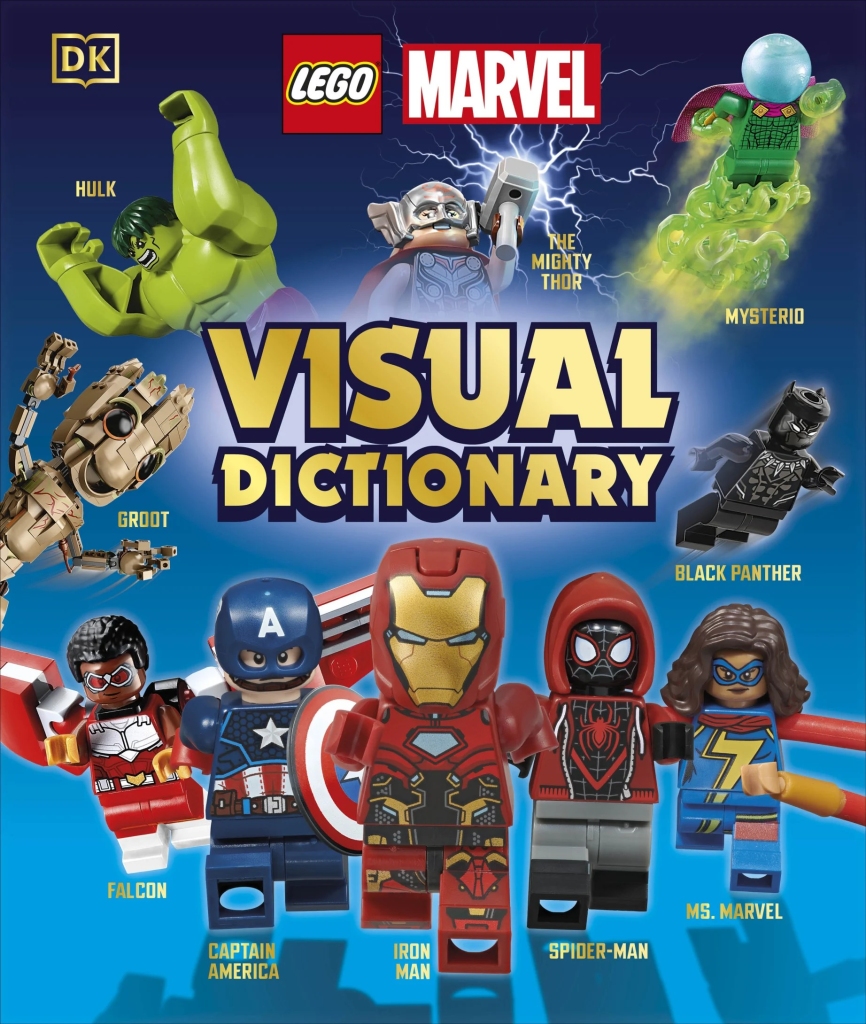
While the description does not clarify whether this is the exclusive minifigure confirmed for the title, it seems unlikely that the cover of the book would not advertise the exclusive minifigure and this is undoubtedly a new Iron Man minifigure.
This appears to be based on the Model 64 suit from the Tony Stark: Iron Man comic series in 2019.


The listing also includes a look at a few of the pages inside the book, confirming that the LEGO Marvel Visual Dictionary will cover sets, minifigures and even buildable figures.






The first LEGO Marvel Visual Dictionary will be available for $24.99 from September 19, 2023. Also coming later this year is a new edition of the LEGO Harry PotterCharacter Encyclopedia with an exclusive Rita Skeeter minifigure.
Support the work that Brick Fanatics does by purchasing your LEGO sets using our affiliate links.
Friday, April 14, 2023
LEGO Marvel Visual Dictionary Updated Cover - New Iron Man Model 64 Minifigure - The Brick Fan - Dictionary
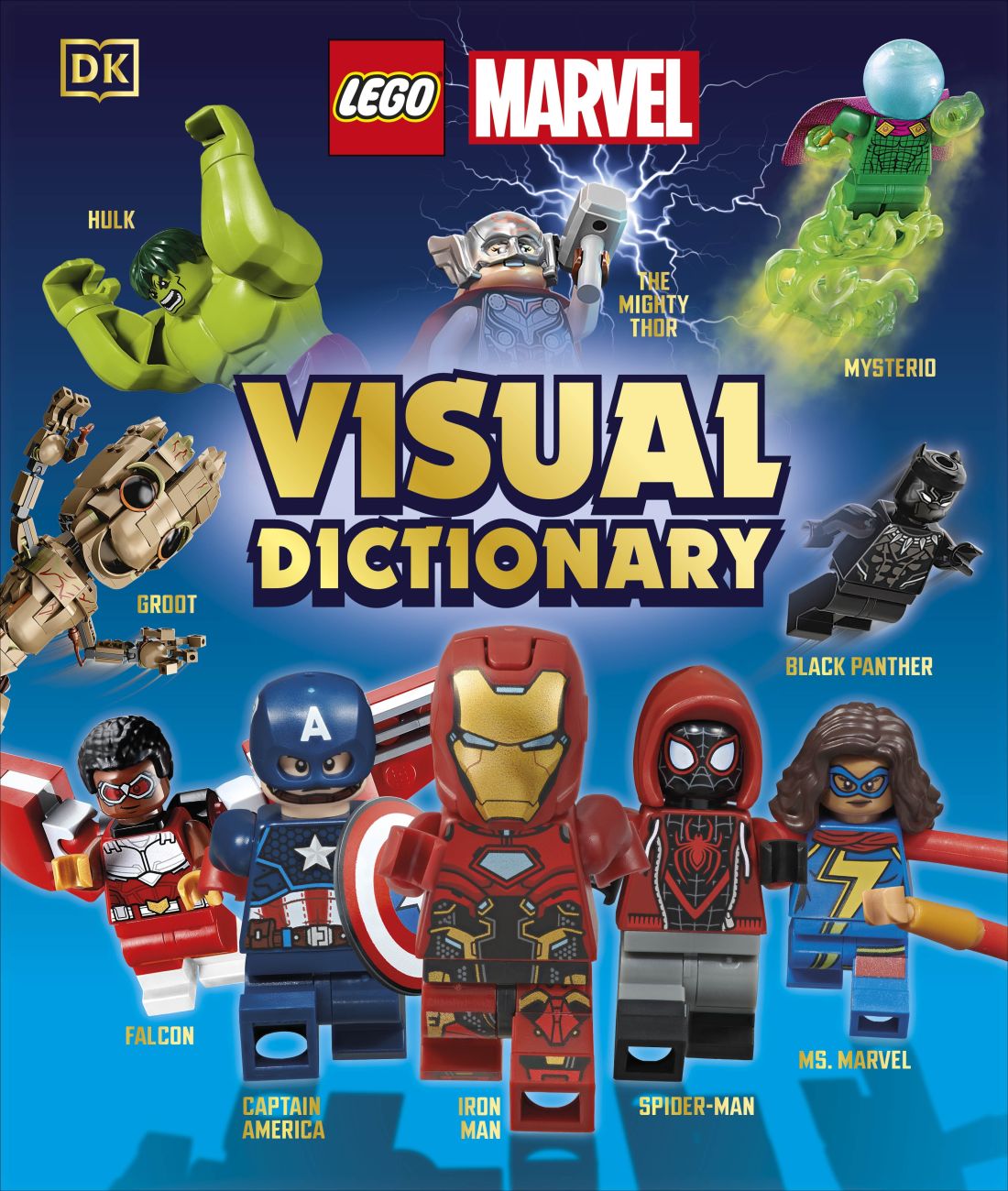
DK has updated the cover for the upcoming LEGO Marvel Visual Dictionary and it looks like we’ll be getting an exclusive Iron Man minifigure. It is said to be based on Iron Man Armor Model 64 from 2019’s Tony Stark: Iron Man #14. Pre-orders for the 160 page book are still not open yet it is listed for a September 19 release.
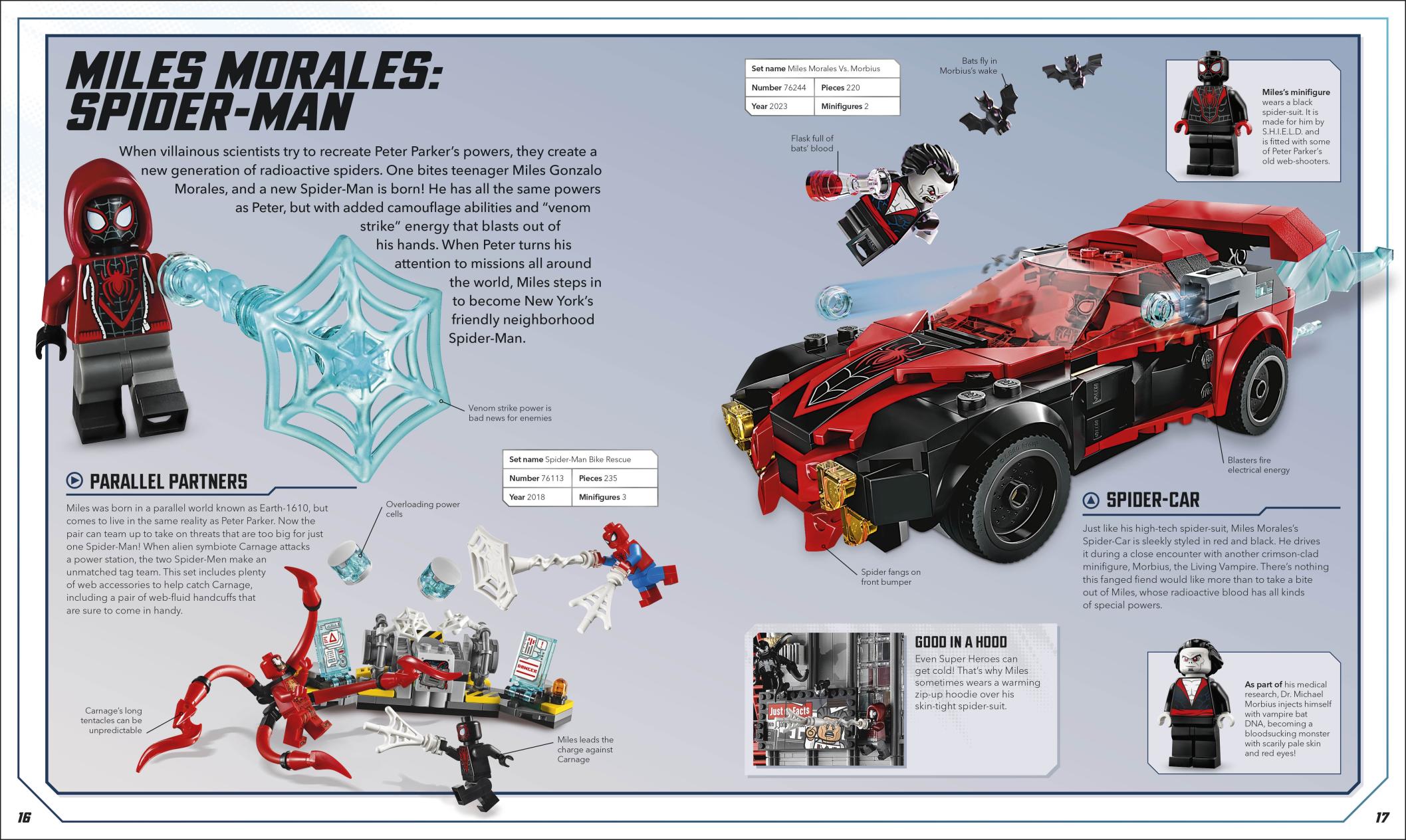





When you make a purchase or, sometimes, carry out some other action as direct result of clicking on a link at The Brick Fan, we will receive a small commission.
The Brick Fan is a participant in the Amazon Services LLC Associates Program, an affiliate advertising program designed to provide a means for sites to earn advertising fees by advertising and linking to Amazon.com. As an Amazon Associate I earn from qualifying purchases.
We partner with Rakuten Advertising, who may collect personal information when you interact with our site. The collection and use of this information is subject to the privacy policy located here: https://ift.tt/jY9azD4